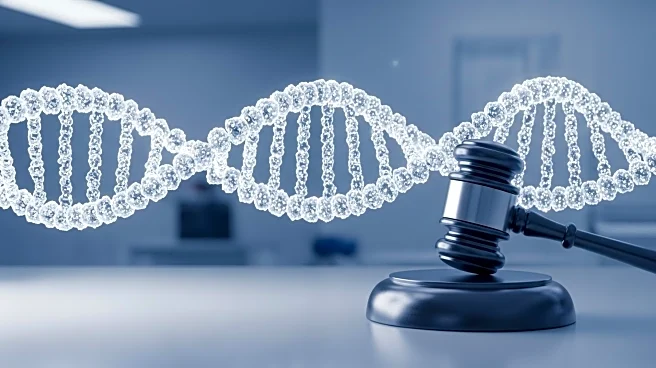What's Happening?
Ascend Advanced Therapies has successfully defended its European patent EP3722434, which protects its proprietary EpyQ® AAV plasmid technology, in opposition proceedings before the European Patent Office (EPO). This decision confirms the novelty and robustness of Ascend's approach to AAV plasmid design and production. Markus Hörer, Ascend's Chief Scientific Officer, stated that the defense of the patent reinforces Ascend's position as a leader in AAV plasmid technology and strengthens its ability to support partners in advancing gene therapy development. The successful maintenance of this patent provides a strong foundation for the continued development and application of EpyQ® technology in gene therapy.
Why It's Important?
The successful defense of Ascend's patent is significant for the gene therapy industry, as it ensures the protection of innovative technologies that are crucial for advancing genetic medicine. By securing its intellectual property, Ascend can continue to provide cutting-edge AAV plasmid and vector solutions, which are essential for the development of gene therapies. This strengthens the company's position in the market and supports its partners in navigating the complex IP landscape, ultimately accelerating progress in genetic medicine.
What's Next?
Ascend plans to continue developing and applying its EpyQ® technology in the rapidly evolving field of gene therapy. The company remains committed to delivering high-quality AAV plasmid and vector solutions that enable innovation and accelerate progress in genetic medicine. Ascend's team will focus on expanding its development, manufacturing, and fill/finish capabilities for gene therapies, oncolytics, vaccines, and immunotherapies.
Beyond the Headlines
The successful defense of Ascend's patent highlights the importance of robust intellectual property strategies in the biotech industry. As gene therapy continues to evolve, companies must navigate complex IP landscapes to protect their innovations and maintain competitive advantages. This case underscores the need for strong patent protection to support the development and commercialization of advanced therapies.









